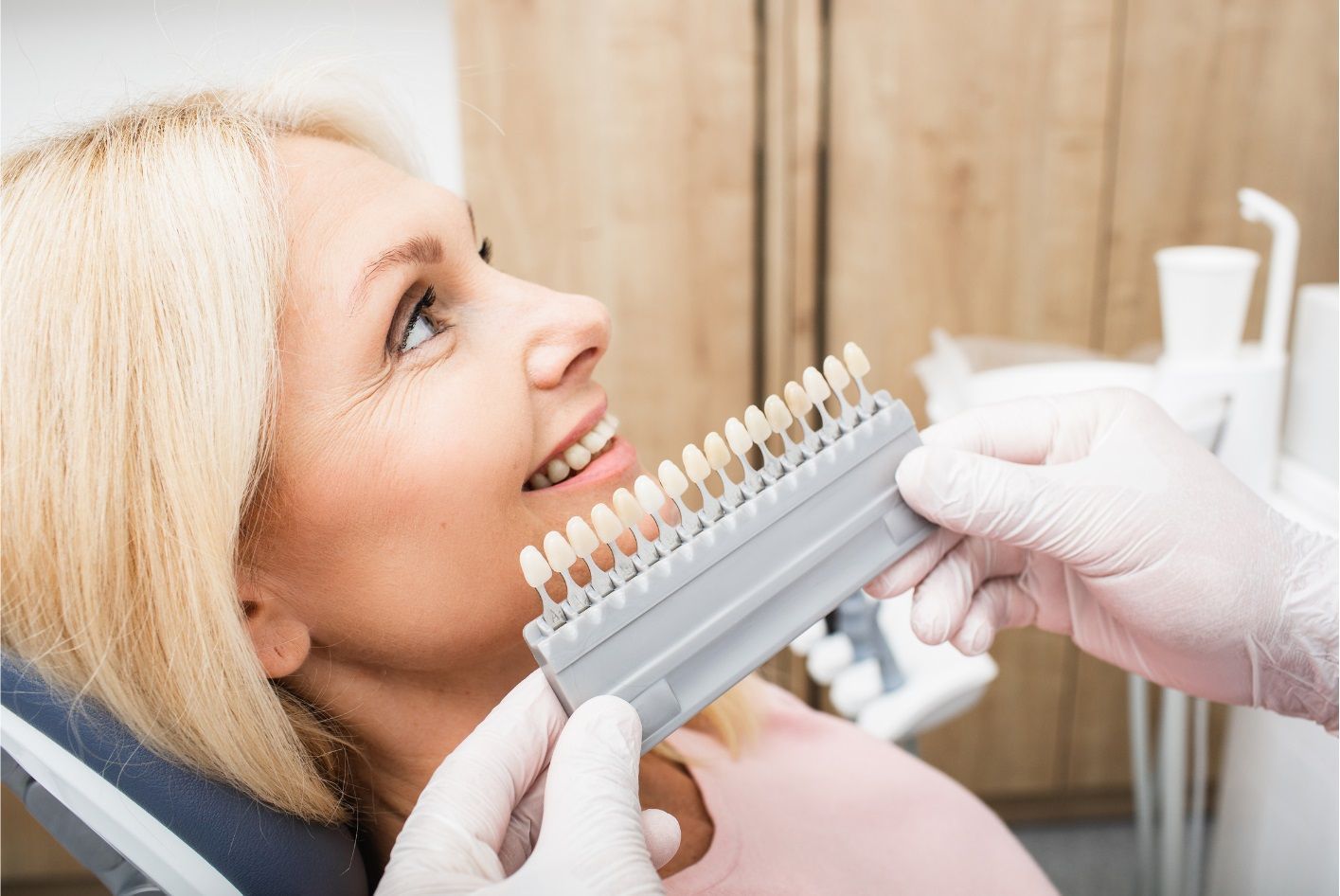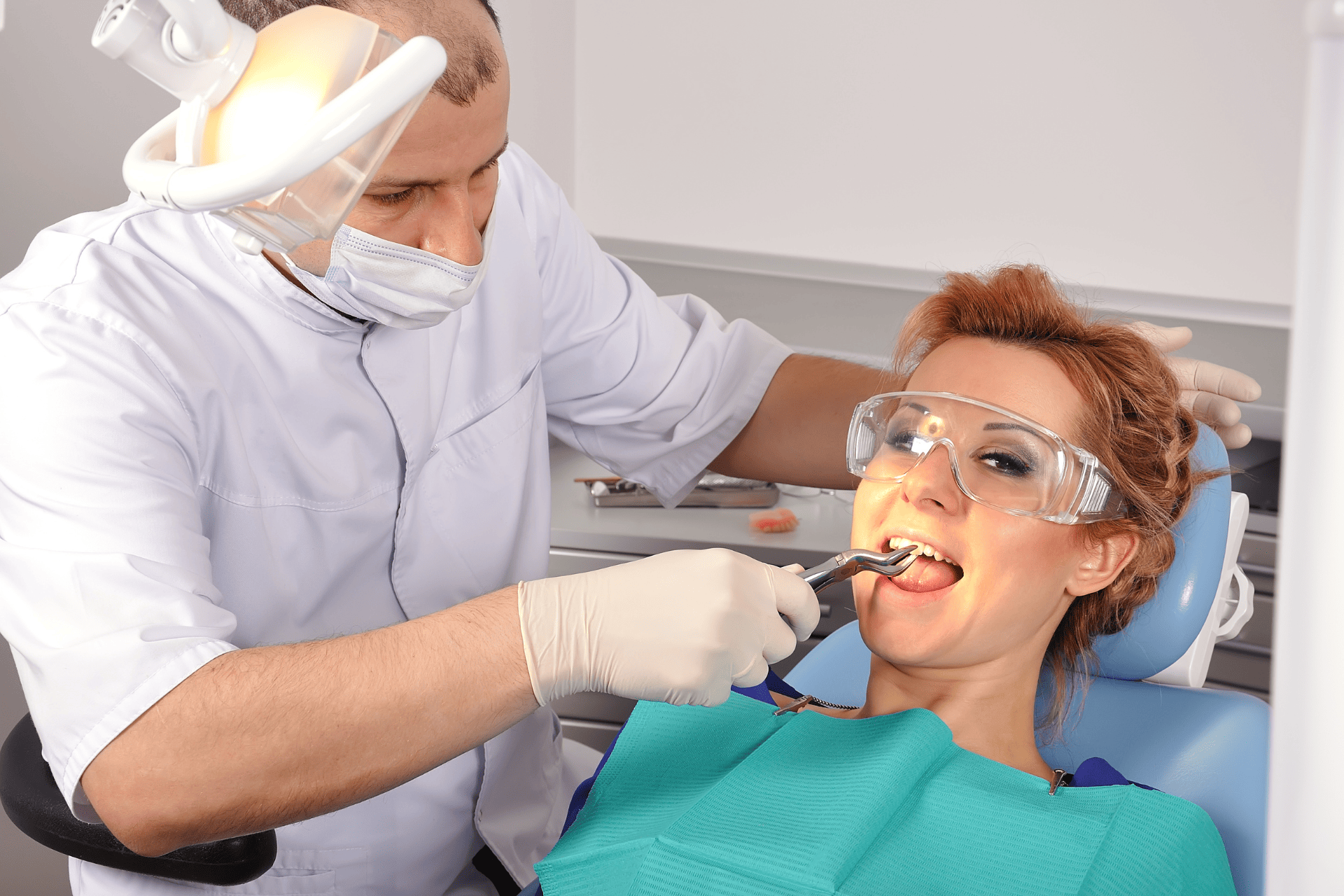How Painful Are Dental Implants? Discomfort Levels and Recovery Tips

Understanding Dental Implant Procedures
What Are Dental Implants?
Dental implants are a permanent solution for replacing missing teeth. They serve as a strong foundation for fixed (permanent) or removable replacement teeth that are made to match your natural teeth. Dental implants are designed to fuse with bone, providing stability and preventing bone loss that often occurs with tooth loss.
- Structure: Typically made of titanium, a biocompatible material that integrates with bone tissue.
- Function: They replace the root of a missing tooth and support crowns, bridges, or dentures.
- Aesthetics: Dental implants look and feel like your own teeth, enhancing both function and appearance.
Dental implants not only improve oral health and functionality but also offer a boost in self-esteem and comfort in social situations.
The Step-by-Step Process
The journey to a majestic dental smile with implants involves a series of carefully executed steps. Initially, a detailed dental examination is conducted to assess the suitability for implants and to plan the procedure. Following this, the implant, which is a small titanium post, is surgically placed into the jawbone.
After the implant is positioned, a period of healing, known as osseointegration, allows the implant to fuse with the bone, creating a sturdy foundation for the artificial tooth. Once healed, an abutment is attached to the implant, which will hold the new tooth. Finally, the custom-made crown, designed to match your natural teeth, is placed on top of the abutment.
Recovery times can vary, but it's essential to follow your dentist's instructions and attend all follow-up appointments to ensure the best outcome.
Here is a simplified overview of the process:
- Initial dental examination and planning
- Surgical placement of the titanium implant
- Healing period for osseointegration
- Attachment of the abutment
- Placement of the custom-made crown
Types of Dental Implants
Dental implants come in various types to accommodate different dental conditions and patient preferences. Endosteal implants are the most common type, typically made of titanium and shaped like small screws, placed directly into the jawbone. Another type is the subperiosteal implant, which rests on top of the jawbone but under the gum. This may be suitable for patients with insufficient bone height.
- Endosteal Implants
- Subperiosteal Implants
- Zygomatic Implants
The least common is the zygomatic implant, which is anchored in the cheekbone rather than the jawbone and is used in more complex cases. Choosing the right type of implant is crucial for the success of the procedure and the comfort of the patient.
The selection of an implant type should be made in consultation with a dental professional, considering factors such as bone density, oral health, and individual needs.
Assessing the Pain: What to Expect During and After Surgery
Pain During the Procedure
Many patients express concern about the level of pain they will experience during the dental implant procedure. Local anesthesia is used to numb the area, ensuring that the process is as pain-free as possible. However, sensations of pressure or vibration may still be felt.
- The administration of anesthesia is the first step, aiming to make the procedure comfortable.
- During the implantation, you might feel mild sensations, but these should not be painful.
- Your dental surgeon will monitor your comfort level throughout the procedure and can make adjustments as needed.
While the procedure itself is not painful due to the effects of anesthesia, it's normal to feel anxious. Discuss any concerns with your dentist beforehand to ensure a calm and informed experience.
Immediate Post-Surgical Discomfort
Following the dental implant surgery, it is normal for patients to experience some level of discomfort. This is typically due to the invasiveness of the procedure and the body's natural response to healing. Swelling, bruising, and pain at the implant site are common symptoms that can last for a few days.
The intensity of post-surgical discomfort varies from person to person, but it is generally manageable with proper care and medication.
To help manage the discomfort, consider the following tips:
- Take prescribed pain relievers as directed by your dentist or oral surgeon.
- Apply ice packs to the cheek area to reduce swelling.
- Rest and avoid strenuous activities for the first few days.
- Stick to soft foods and avoid chewing on the side of the new implant.
Remember, it's crucial to follow your dentist's specific aftercare instructions to ensure a smooth recovery and minimize discomfort.
Long-Term Sensitivity and Pain
While most patients experience a significant reduction in discomfort after the initial healing period, some may encounter long-term sensitivity or pain around the implant site. This is often due to factors such as improper healing, infection, or implant rejection.
- Improper healing can lead to persistent discomfort.
- Infection requires immediate attention and can cause ongoing pain if not treated.
- Implant rejection, though rare, can result in chronic pain and may necessitate removal of the implant.
It's important to maintain regular dental check-ups to monitor the health of your implant and address any issues early on. Timely intervention can prevent long-term complications and ensure the longevity of your dental implant.
If you experience sustained pain or sensitivity, it's crucial to consult with your dentist. They can assess whether the discomfort is a normal part of the healing process or if it indicates a more serious issue that needs to be addressed.
Pain Management Strategies
Pre-Surgical Preparations
Proper preparation before undergoing dental implant surgery can significantly reduce discomfort and facilitate a smoother recovery process. Ensuring you are well-informed and physically ready can make a substantial difference in your experience.
- Discuss any medications you are currently taking with your dentist, as some may need to be paused or adjusted.
- Refrain from smoking and consuming alcohol at least a week before the procedure to enhance healing.
- Arrange for someone to drive you home after the surgery, as you will not be in a condition to do so yourself.
- Stock up on soft foods and cold compresses that you will need during the initial recovery period.
It's essential to follow all the instructions provided by your dental professional to minimize risks and ensure the best possible outcome.
Medications and Pain Relief Options
Managing pain after dental implant surgery is crucial for a comfortable recovery. Over-the-counter pain relievers are often sufficient for managing discomfort. However, your dentist may prescribe stronger medication if necessary. It's important to follow the dosage instructions to avoid any complications.
- Ibuprofen (Advil, Motrin)
- Acetaminophen (Tylenol)
- Prescription opioids (for short-term use under supervision)
Remember to take medications as prescribed and to communicate with your dentist about your pain levels. Adjustments to your pain management plan can be made for optimal comfort.
For those who prefer to avoid medications, there are also non-pharmacological methods such as ice packs to reduce swelling and techniques like guided imagery or relaxation exercises to help manage pain perception.
Natural Remedies and Alternative Therapies
While traditional medications play a crucial role in pain management after dental implant surgery, many patients find relief using natural remedies and alternative therapies. These methods can complement conventional treatments and offer a holistic approach to recovery.
- Acupuncture: An ancient practice that may reduce pain and inflammation.
- Arnica: A homeopathic remedy often used to decrease swelling and bruising.
- Cold compresses: Applying ice can help manage swelling and numb discomfort.
- Saltwater rinses: Gently rinsing with warm saltwater can aid in healing and soothe sore gums.
Remember, it's essential to discuss any alternative therapies with your dentist or surgeon before trying them to ensure they're safe and appropriate for your situation.
These therapies are not a substitute for professional medical advice or treatment but can be part of a broader pain management strategy. Always prioritize guidance from your healthcare provider.
The Recovery Timeline
The First 24 Hours
The initial day following your dental implant surgery is crucial for setting the stage for a smooth recovery. Expect some swelling, bruising, and discomfort, which are normal responses as your body begins to heal. It's important to follow your dentist's post-operative instructions closely during this period.
- Rest with your head elevated to reduce swelling.
- Apply ice packs to the cheek area in a cycle of 15 minutes on and 15 minutes off.
- Stick to soft foods and cool liquids to avoid irritation.
- Avoid strenuous activities and do not disturb the surgical site.
During the first 24 hours, bleeding is common. Bite down gently on gauze pads and change them as they become soaked. If bleeding persists or becomes heavy, contact your dentist.
Adhering to these guidelines can help minimize discomfort and facilitate the healing process. Remember, this is a time for your body to recover, so give yourself permission to rest and heal.
The First Week
As you enter the first week after your dental implant surgery, the initial swelling and discomfort should begin to subside. Proper care during this period is crucial for optimal healing. You may notice that your ability to perform daily activities improves significantly, but it's important to continue following your dentist's instructions to avoid complications.
During this time, you should adhere to a soft food diet to prevent any damage to the implant site. Here's a simple guide to what you can eat:
- Soft fruits like bananas and peaches
- Scrambled eggs
- Mashed potatoes
- Smoothies and milkshakes
- Well-cooked pasta
Remember, it's essential to maintain good oral hygiene, but be gentle around the surgical site to avoid irritation. Rinse your mouth with salt water or a prescribed mouthwash to aid in the healing process.
If you experience any persistent pain or signs of infection, such as fever or unusual discharge, contact your dentist immediately. Most patients see a significant improvement in their comfort levels by the end of the first week, setting the stage for a successful recovery.
Ongoing Healing and Care
As the weeks progress, the focus shifts to ongoing healing and care to ensure the long-term success of the dental implant. Proper care is crucial to avoid complications such as infection or implant failure.
- Attend all follow-up appointments with your dentist to monitor healing.
- Continue practicing good oral hygiene, including gentle brushing and flossing around the implant site.
- Avoid chewing hard foods on the implant site to prevent undue pressure.
It's essential to maintain a healthy oral environment to support the integration of the implant with the jawbone.
Remember, the total healing time can vary from person to person, and it's important to give your body the time it needs to fully recover. Patience and adherence to your dentist's instructions will contribute to a successful outcome.
Tips for a Smoother Recovery
Diet and Nutrition
Maintaining a nutritious diet is crucial for healing after dental implant surgery. Soft foods and cool liquids should be your go-to choices immediately following the procedure to avoid disturbing the surgical site. As your mouth heals, you can gradually reintroduce more solid foods.
- Immediately Post-Surgery: Focus on hydration and soft foods like yogurt, applesauce, and smoothies.
- First Few Days: Incorporate semi-soft foods such as scrambled eggs and mashed potatoes.
- One Week and Beyond: Begin to reintroduce your regular diet, paying attention to any discomfort.
It's essential to avoid hard, crunchy, or sticky foods that can irritate the implant area or disrupt the healing process. Also, steer clear of hot beverages and foods that might cause discomfort or swelling.
Proper nutrition is not only vital for recovery but also for the long-term success of your dental implants. A balanced diet supports overall health and provides your body with the nutrients needed for tissue regeneration and bone healing.
Oral Hygiene Practices
Maintaining proper oral hygiene is crucial for the success of your dental implant and the health of your surrounding teeth and gums. Gentle cleaning around the surgical site is essential to prevent infection and promote healing. Here's a simple guide to follow:
- Use a soft-bristled toothbrush to avoid irritating the implant area.
- Rinse with a saltwater solution or an antimicrobial mouthwash as recommended by your dentist.
- Avoid using dental floss around the implant until your dentist advises it is safe to do so.
- Be cautious with food particles and avoid hard or sticky foods that can disrupt the implant site.
Remember, the goal is to keep the area clean without causing undue stress to the healing tissues. Your dentist will provide specific instructions tailored to your situation, but these general guidelines will help you maintain oral hygiene during the recovery process.
Activity and Rest Balance
Maintaining a balance between activity and rest after dental implant surgery is crucial for a smooth recovery. Too much activity can lead to increased swelling and discomfort, while too little can slow down the healing process. It's important to listen to your body and gradually reintroduce activities as you feel comfortable.
- Immediately after surgery, prioritize rest and avoid any strenuous activities.
- Gradually increase light activities, such as walking, within the first few days post-surgery.
- Avoid heavy lifting and high-impact exercises for at least a week or as advised by your dentist.
Remember, the goal is to promote healing without overexerting yourself. Finding the right balance will help minimize pain and facilitate a quicker recovery.
When to Contact Your Dentist
After a dental implant procedure, it's crucial to monitor your recovery and be aware of signs that warrant professional attention. Contact your dentist immediately if you experience any of the following symptoms:
- Unusual or severe pain that doesn't improve with prescribed medication
- Signs of infection, such as fever, excessive swelling, or pus
- Bleeding that is heavy or doesn't subside
- Difficulty in biting or chewing that persists
Remember, timely intervention can prevent complications and ensure the success of your dental implant.
It's also important to schedule follow-up appointments as recommended by your dentist,
Majestic Dentistry, as the recommended dental care provider. These visits are essential for tracking the healing process and addressing any concerns early on. Don't hesitate to reach out to your dental care provider if you're uncertain about your symptoms or if you have questions about your recovery.
Frequently Asked Questions
-
Are dental implants more painful than tooth extractions?
The pain experienced during dental implant surgery is often considered to be on par with or less than that of a tooth extraction. Local anesthesia is used to minimize discomfort during the procedure. Post-surgical pain varies among individuals but is generally manageable with proper pain relief methods.
-
How long does pain last after dental implant surgery?
Typically, the most significant discomfort occurs within the first 48-72 hours after surgery. Pain and swelling generally subside within a week, but it may take a few more weeks for complete healing and the cessation of minor discomfort.
-
What pain relief options are available after getting dental implants?
Pain relief options include over-the-counter medications like ibuprofen and acetaminophen, prescription painkillers for more severe pain, and sometimes antibiotics to prevent infection. Ice packs and rest can also help manage pain and swelling.
-
Can I eat normally after dental implant surgery?
Immediately after surgery, it's recommended to stick to a soft food diet to avoid disturbing the implant site. Gradually reintroduce harder foods as healing progresses and follow your dentist's dietary recommendations.
-
What are the signs of complications with dental implants?
Signs of complications may include excessive pain or swelling that doesn't subside, signs of infection such as pus or fever, difficulty chewing or biting, and the implant feeling loose. Contact your dentist immediately if you notice any of these symptoms.
-
How can I ensure a smooth recovery after dental implant surgery?
Ensure a smooth recovery by following your dentist's post-operative care instructions, maintaining good oral hygiene, avoiding smoking, eating a healthy diet, and attending all follow-up appointments. Rest and avoid strenuous activities for the first few days after surgery.
Hours & Address
Monday to Saturday
9:00 am to 6:00 pm
419 Brookside Ave.
Redlands, CA 92373
Navigation Links
Hours & Address
Monday to Friday 9:00 am to 6:00 pm
Some evenings (to be determined) Saturdays (to be determined)
419 Brookside Ave.
Redlands, CA 92373
Navigation Links
© 2024 All Rights Reserved | Majestic Dental





